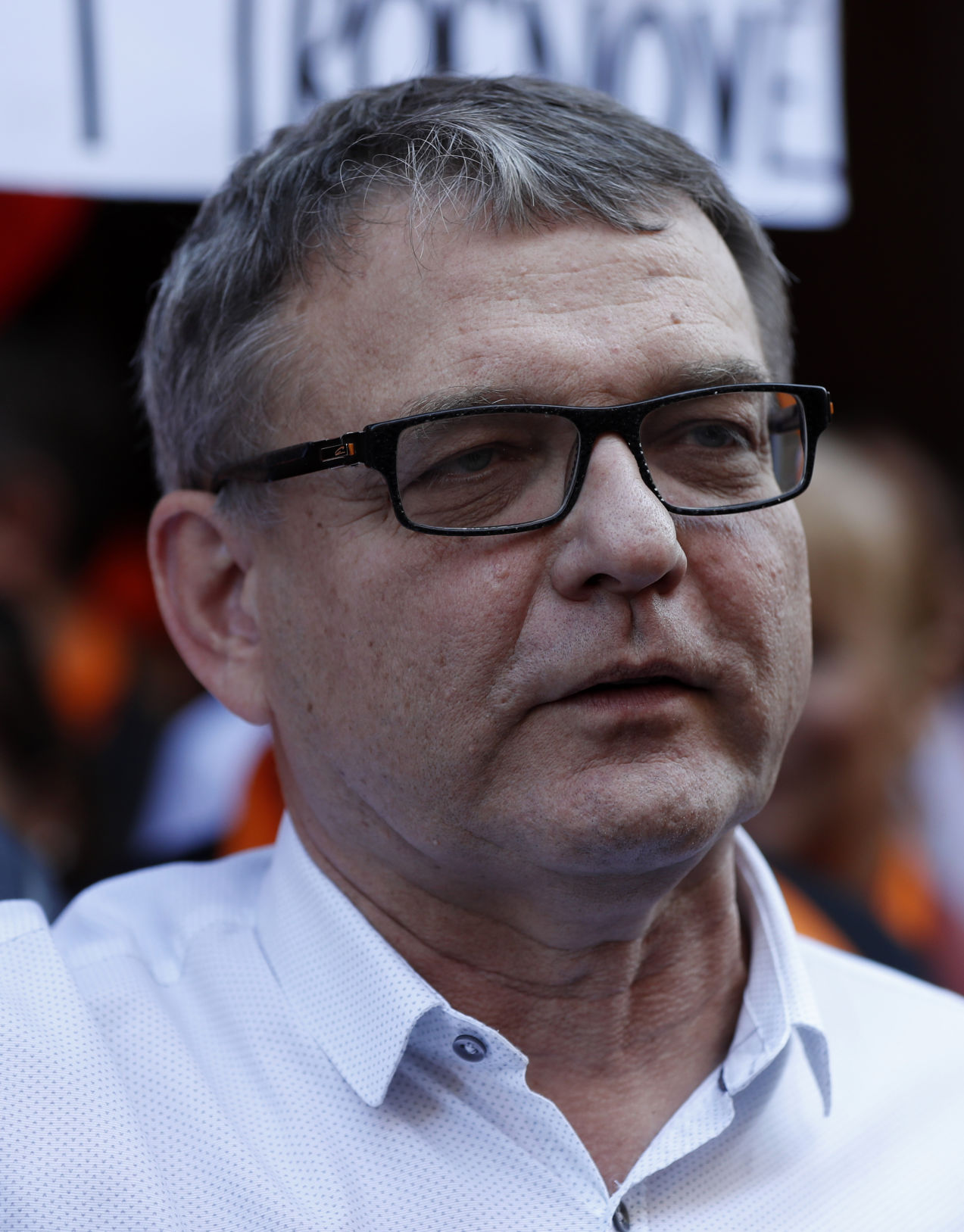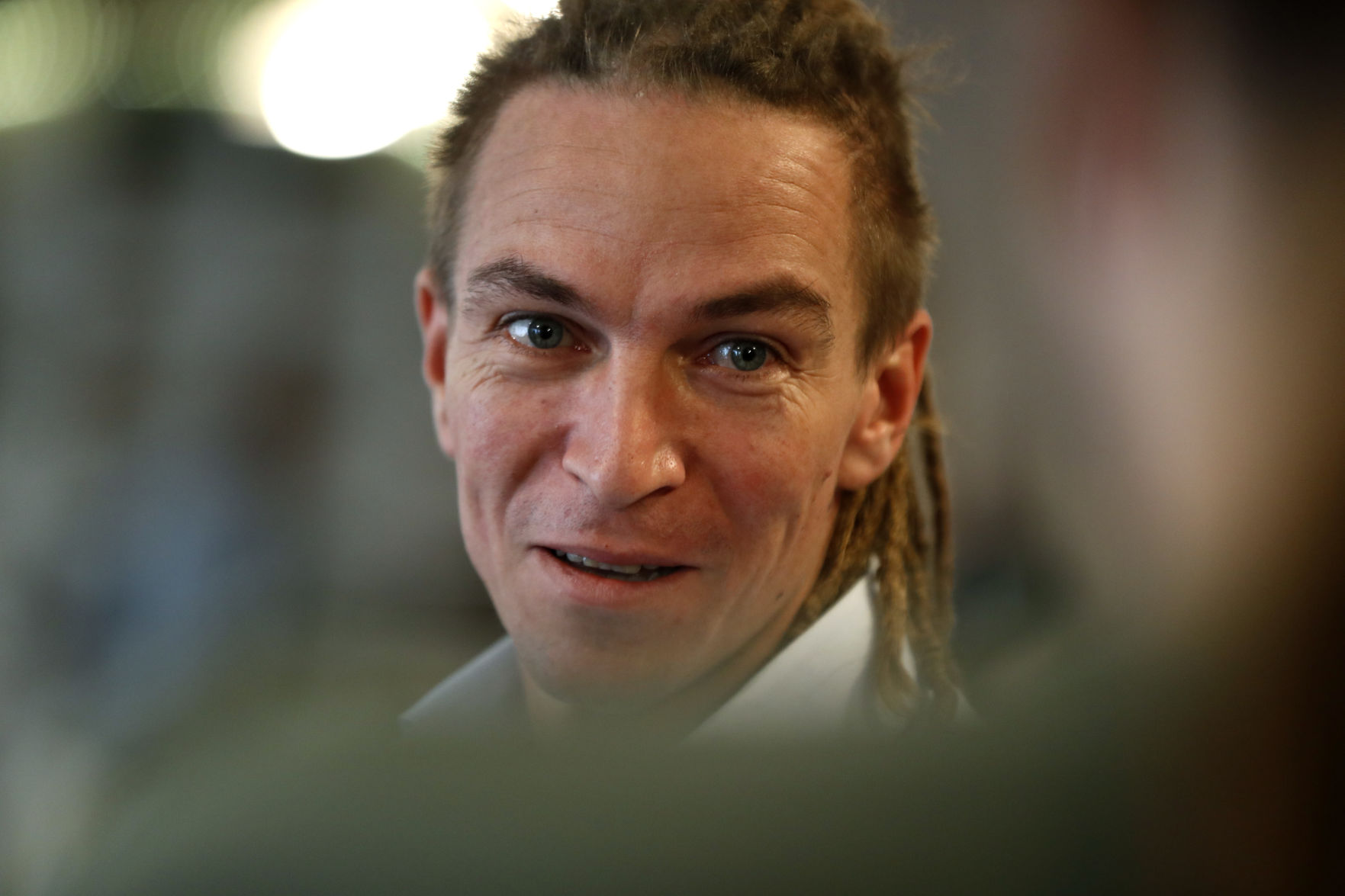PRAGUE (AP) — Elections in the Czech Republic this weekend are expected to leave the European Union with yet another euroskeptic government in Central Europe. Although the country boasts one of the European Union’s fastest-growing economies and lowest jobless rates,
PRAGUE (AP) — Elections in the Czech Republic this weekend are expected to leave the European Union with yet another euroskeptic government in Central Europe.
Although the country boasts one of the European Union’s fastest-growing economies and lowest jobless rates, voters are fed up with corruption and with the unpopular center-left Prime Minister Bohuslav Sobotka.
Of the eight parties expected to win seats in Parliament’s lower house, half challenge the traditional political mainstream. Some exploit fears of immigration and Islam, while others oppose the country’s membership in the EU and NATO.
The populist billionaire Andrej Babis, a media mogul and a former finance minister, is the front-runner going into the balloting on Friday and Saturday.
A look at the key contenders:
———
THE FAVORITE
The 63-year-old Babis is the county’s second richest man, with a media empire including two major newspapers and a popular radio station. He is sometimes dubbed the “Czech Berlusconi,” a reference to the former Italian leader and media tycoon.
Though Babis was a finance minister in the outgoing government until May, many Czechs see him as a maverick outsider with the business acumen to shake up the system. With slogans claiming he can easily fix the country’s problems, he is, for some, the Czech answer to U.S. President Donald Trump.
Babis’s ANO (Yes) centrist movement stormed Czech politics four years ago, finishing a surprising second in the previous election with an anti-corruption message to become a junior partner in the government.
Polls suggest he is most likely to become the next Czech prime minister even though he is facing allegations of fraud linked to EU subsidies. He has also been accused of collaborating with the country’s communist-era secret police, and a court recently cancelled previous rulings that cleared him of the claims.
President Milos Zeman is a Babis ally, which helps because he appoints the prime minister — but forming a coalition could be tricky as many politicians say the allegations against Babis make him unsuitable as leader.
ANO is united with most other Czech parties in completely rejecting the EU’s quota system on redistributing refugees. Babis has been critical of the EU, and opposes setting a date for adopting the euro.
———
SYSTEM CHALLENGERS
The most radical challenger is the Freedom and Direct Democracy movement, which attracts anti-migrant, anti-Islam and anti-EU supporters.
Leader Tomio Okamura has said Islam is “an ideology of hate” and wants to ban it. The party also opposes NATO’s defense budget requirement for member states, and wants a referendum to reconsider the country’s EU membership.
“We are under total dictatorship by Brussels,” Okamura has said. Polls show he might get 9 percent of the vote.
The liberal Pirate Party, which supports EU and NATO membership and is popular with young voters, may have a chance to gain parliamentary seats for the first time. Recent polls show they have support of about 6 percent or higher.
———
STRUGGLING LEFT
The Social Democrats, the senior party in the outgoing government, have seen their popularity fall due to an unpopular leader.
Prime Minister Bohuslav Sobotka recently said the party would be willing to form a coalition government with the Communists, which would be the first time they shared power since the 1989 Velvet Revolution.
The Communist Party, which vehemently opposes NATO and maintains friendly ties with the ruling communists in Cuba, China and North Korea, are expected to get more than 10 percent.
———
RIGHT KEPT AT BAY
None of the leading right and center-right parties is expected to take 10 percent of the vote.
The conservative Civic Democrats, formerly the strongest Czech party, is still struggling to recover from scandals that ended its rule in 2013.
TOP 09, another conservative force created by former Foreign Minister Karel Schwarzenberg, will be lucky if it reaches the threshold to enter parliament. The Christian Democrats, the third member of the outgoing coalition, is in the same position.




